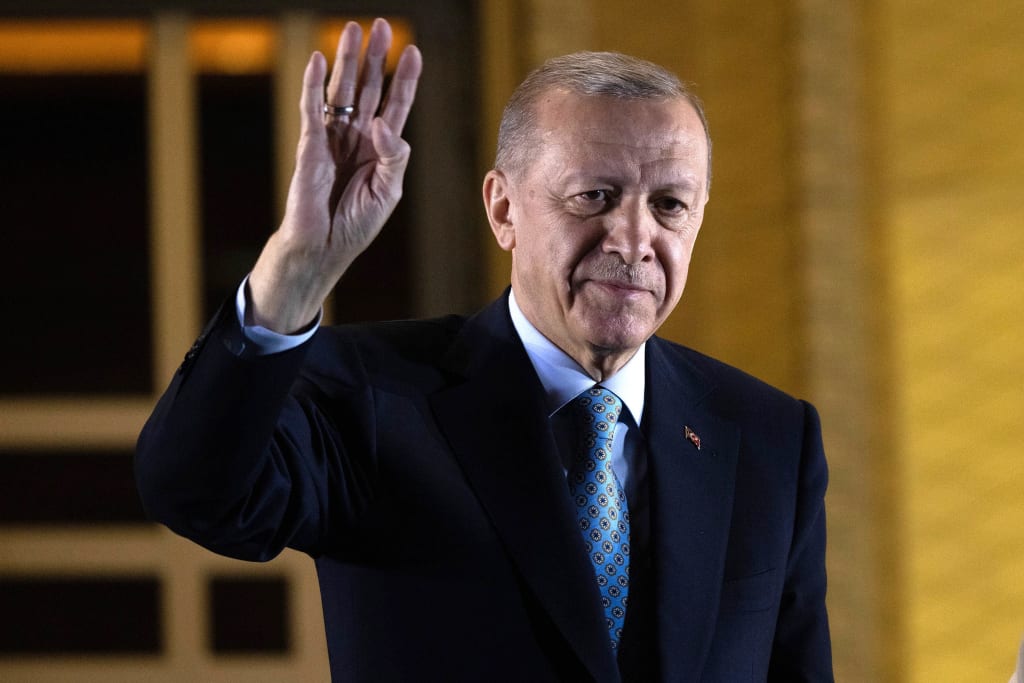Same president, same economic problems
Why reelecting Erdogan won't help Turkey's inflation

Over the course of the past two decades, Recep Tayyip Erdogan's rise to power in Turkey has been accompanied by a striking devaluation of the country's currency, the lira. Shockingly, the lira has lost approximately 90% of its value against the US dollar during Erdogan's tenure. This drastic decline has had dire consequences, particularly in the form of rampant inflation, which has wreaked havoc on the Turkish economy.
It is a widely accepted economic principle that when a currency experiences such a steep fall, inflation runs rampant, especially in a country like Turkey, heavily reliant on importing essential goods and raw materials from global markets. Official figures suggest that the Turkish inflation rate currently stands at 44%, reflecting a significant decrease from the previous year's 85%. However, many experts contend that the actual rate of inflation is even higher than the official figures indicate.
The burden of escalating prices is disproportionately borne by the poorer households in Turkey, who must allocate a significant portion of their meager incomes towards meeting basic everyday needs. A study conducted by a Turkish trade union last year revealed that food prices had nearly tripled within a span of just one year, with the costs of vegetables experiencing an even more staggering surge.
Traditionally, economic orthodoxy dictates that central banks should raise interest rates to combat excessive inflation. By doing so, loans and investments become more expensive, leading to a cooling down of the economy and subsequent price reductions. However, Erdogan has taken a brazenly unorthodox approach, coercing the Turkish central bank to lower interest rates even further, despite the country already grappling with high and accelerating inflation. This reckless policy, derided by economists worldwide, has seriously undermined the Turkish central bank's independence and its ability to effectively curtail rising prices.
In his defense, Erdogan has put forth the argument that providing cheap loans would grant businesses greater freedom to invest, thereby stimulating the Turkish economy. However, this approach has come at a significant cost. Erdogan's unorthodox economic policies have also resulted in a burgeoning government debt crisis. Astonishingly, according to data published by the International Monetary Fund (IMF), Turkey's public debt has more than quadrupled in just the past five years. The alarming increase in public debt means that any rise in interest rates could prove toxic to the financing of this mounting debt burden.
Ironically, despite the global COVID-19 pandemic, Turkey has fared relatively well in terms of economic growth under Erdogan's leadership. Through the implementation of cheap credit and lavish government spending, the economy managed to expand by an impressive 11% in 2021. Even in the previous year, when the fallout from Russia's invasion of Ukraine and escalating energy costs cast a shadow, Turkey still achieved a commendable 3% growth rate. The tourism sector, in particular, has experienced a remarkable resurgence following the easing of travel restrictions.
However, Turkey's economic expansion hit a snag this year due to a devastating earthquake that struck the southern region of the country in February. The earthquake resulted in the tragic loss of more than 50,000 lives and left three million people displaced. Furthermore, the run-up to the presidential election was plagued by political and economic uncertainties, causing a decline in direct investments, especially from the European Union. This downturn in investments widened the foreign trade deficit, depleting the central bank's foreign exchange reserves. In fact, just prior to the elections, the Turkish central bank's net reserves reached their lowest level since 2002, raising concerns about the country's financial stability.
Adding to the controversy surrounding Erdogan's economic policies, it has been alleged that Turkey has received substantial support from wealthy Arab countries in the Gulf region. Additionally, Erdogan's plans to visit Moscow have stirred speculation about his relationship with Russian President Vladimir Putin. Reports suggest that Erdogan intends to express his gratitude to Putin for a staggering credit deferral of $24 billion (€22.37 billion) and a significant discount on gas imports from Russia. As if that were not enough, Russia has also agreed to provide an astonishing $20 billion in project financing for the construction of a nuclear power plant in southern Turkey. These developments have raised eyebrows and fueled discussions about the extent of Turkey's reliance on foreign support and its potential implications for national sovereignty.
As Turkey grapples with the aftermath of a currency crisis, soaring inflation, and an ever-increasing debt burden, the controversial economic policies pursued by Erdogan have left the nation standing on precarious ground. The implications of these policies extend beyond the borders of Turkey, sparking debates about the potential consequences for regional and global economies. Only time will reveal the true impact of Erdogan's unorthodox economic approach, as Turkey finds itself at a critical crossroads in its economic trajectory.





Comments
There are no comments for this story
Be the first to respond and start the conversation.